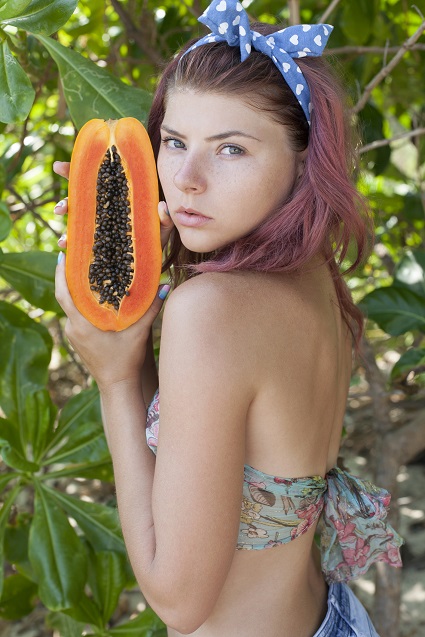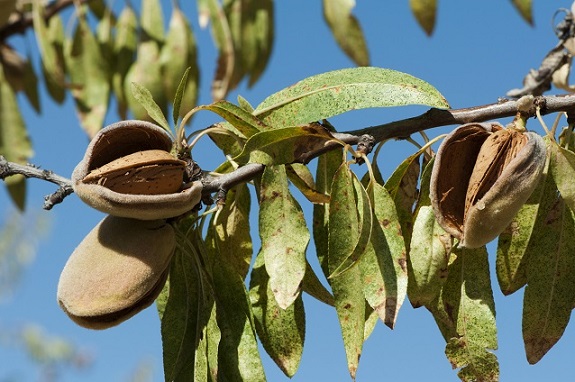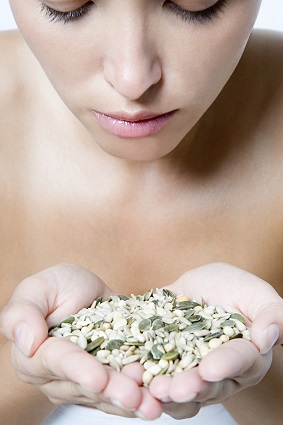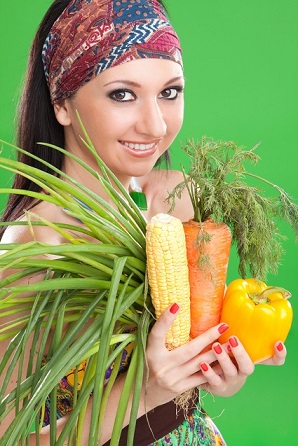 The first thing to know about veganism is that it’s nowhere near optimal for acne. Animal foods have many essential nutrients which are vital for skincare, such as different amino acids, minerals, and fats.
The first thing to know about veganism is that it’s nowhere near optimal for acne. Animal foods have many essential nutrients which are vital for skincare, such as different amino acids, minerals, and fats.
The common fears over meat are mostly caused by poorly produced products, like meat from cramped barnhouse chickens or cows that feed off of grains rather than grass. Such carnivorous foods are nowhere close to natural meat from animals roaming around in nature, and that’s why they lead to illness.
The classic tale with vegans is significantly improved acne within the first several months, but a slow deterioration and weakening the longer you persist. Maybe this has happened to you; maybe it’s about to happen you.
Nevertheless, that’s a topic for another day. The fact is that if you’re here, you may be following veganism for ideological reasons, even while knowing that the diet itself has flaws. That’s why today, you will learn how to make the vegan diet as successful for acne as possible.
If you’re a committed vegan, then you probably understand the cornerstones of the diet, like getting enough vitamin B12 and aquiring protein from plant sources. So in this article, we will focus purely on the strategies related to acne and skincare.
One – never overdose on carbohydrates
This is a common death trap on the vegan diet. Many vegan staples such as fruit, vegetables, and whole grains consist primarily of carbohydrates. It can be refined carbohydrates in flour, or whole carbohydrates from the vegan favourite quinoa; it matters not.
The consequences are severe: too many carbohydrates equals an increased level of insulin in the bloodstream, increased oily skin and more acne than ever. Eating greasy meat and fried eggs is associated with oily skin, but a vegan diet can cause it as well. Many vegans eat 250-300 carbohydrates per day. Some vegans are cycling and running obsessives and expend plenty of those carbs, but some get very little exercise at all, believing that simply being vegan is enough.
You have to avoid this at all costs, and the solution is to shift your vegan choices away from grains and add in some nuts, seeds, and oils. Almonds are perfectly vegan friendly, and are high in fats and protein. Walnuts, coconuts, dark chocolate, pistachios and olive oil are the same. There are so many options; it’s a piece of cake to reduce your carbohydrate intake once you’ve identified the problem.
Read Annihilate Your Acne – get the ultimate diet for clear and glowing skin!
Always keep your macronutrients under control. This situation arises from a lack of thought: many vegans jump into their new diet focussing on the glorious benefits of excluding animal foods, and maybe how to acquire protein and vitamin B12; an overdose of carbohydrates is rarely considered. Watch out!
Two – never overdose on sugar
 The vegan adverts are everywhere: young men and women with vibrant, glowing, healthy-looking skin holding a bunch of bananas or a pineapple, alongside a slogan of “go vegan”.
The vegan adverts are everywhere: young men and women with vibrant, glowing, healthy-looking skin holding a bunch of bananas or a pineapple, alongside a slogan of “go vegan”.
Many people jump into an all-out fruit-frenzy the moment they start the vegan diet. It’s part of the appeal of it; you might have to reject meat, but you get to feast on flavoursome fruit constantly, and you get healthier. Be very careful! Fruits are extremely healthy, but contain natural sugars which, while less damaging than added sugars, can still wreak havoc in excess. Sugar causes acne by increasing inflammation levels and generating free radicals called AGEs.
This mistake is particularly prevalent among a vegan diet subsect, the fruitarian diet, which consists entirely of fruit. You should definitely eat plenty of fruit because of the vitamin C and antioxidants, but you should combine this with green vegetables as well.
Many ignore green vegetables because of the boring or terrible taste, but they contain the benefits of fruit without the sugar. Broccoli and kale are particularly strong. You should also focus on the lower sugar fruits such as raspberries, strawberries, blackberries, watermelon, and apricots. Higher sugar fruits like grapes and dates should be controlled.
Three – watch out for FODMAPs
A diet that is heavily rich in plants also entails a diet that is heavily rich in FODMAPs, if you make no attempt to avoid them.
An apple can give you acne, cabbage can give you acne, and onions can give you acne, if you are susceptible. These vegan foods are all high in FODMAPs, poorly digested short chain carbohydrates found in plants which many find hard to digest. This indigestion results in bloating, indigestion, and ultimately, acne.
Your sensitivity depends largely on your gut microbiome, whether your bacterial strains are enriched enough to ferment and digest these FODMAPs properly. Many new vegans are completely unaware of FODMAPs. On a vegan diet they might end up eating more FODMAP-rich foods than ever, get acne, and wonder what on earth is happening.
Don’t let this happen to you! Check the FODMAP-rich food list here, and if you’ve ever experienced random acne outbreaks from any of them, avoid those foods. Note that many FODMAP-rich foods are otherwise extremely nutritious, such as garlic.
You might like to browse the internet for exquisite vegan-friendly recipes as well. Always inspect those recipes, since they might contain onions, garlic, or other FODMAP-rich foods as seasonings.
Important article – the top 6 vitamins and minerals for clearing acne
Do NOT fall for the extreme vegan dogma that all plants are inherently soothing and good while all animal foods are entirely toxic. They each contain their own dangers. In plants, FODMAPs are a great example.
You should also know about glycoalkaloids, defensive toxins found in tomatoes, potatoes, bell peppers and eggplants. These can again increase acne in susceptible people, with tomatoes and eggplants (aubergines) being the strongest.
Your skin might not be sensitive to FODMAPs or glycoalkaloids, but always keep them in mind.
Four – get zinc
 Zinc is one of the most important nutrients for acne and cannot be ignored. The average man and woman is deficient in zinc, but vegans are even more vulnerable.
Zinc is one of the most important nutrients for acne and cannot be ignored. The average man and woman is deficient in zinc, but vegans are even more vulnerable.
The blood zinc levels of vegetarians were significantly lower than normal people in this study, and vegans had the lowest levels. The top sources of zinc tend to be animal foods, including oysters, crab, eggs, and red meat.
What’s the solution? Memorise and incorporate the top vegan sources of zinc. On paper, these include pumpkin seeds, cashews, sesame seeds, pecans, and almonds.
There’s another hitch with phytic acid, a natural mineral binder which prevents zinc absorption, which is found in seeds and nuts and all five of those foods. Levels vary, but as a general rule, divide the zinc content of seeds and nuts in two.
To be safe, you can take a zinc supplement. This MegaFood Zinc is vegan, organic and food derived. That said, vegans don’t need a supplement; obtaining enough zinc through food is possible through clever organisation.
Five – get selenium
With selenium the story is almost identical. It’s a vital mineral for acne, being utilised to manufacture the antioxidant glutathione. You should never neglect selenium if you want clear skin, vegan or not. Most of the best sources are animal foods, particularly salmon and eggs…
…but here’s where the story changes, for the better: we have one killer vegan source in Brazil nuts. Two Brazil nuts contain 610% of the daily allowance for selenium. Selenium is a lot easier to obtain than zinc as a vegan, if you know how to do so. A top quality and reliable bulk brand of Brazil nuts is this bulk bag of Terrasoul Superfoods Raw Brazil Nuts.
Six – get magnesium
We haven’t brought up a single vitamin yet, and that’s because they’re no problem for vegans (B12 aside). You can obtain vitamin A and vitamin C through fruits and vegetables, while vitamin E is plentiful in almonds or olive oil.
Minerals are the key for a vegan, and the final one is magnesium. Levels have declined in all foods, due to over farming, and consequently up to 80% of the entire population is deficient, but vegans are more at risk.
By being vegan you miss out on eggs, salmon, and oily fish like mackerel and herring, but not all is lost. Top vegan sources of magnesium include macadamia nuts, dark chocolate, mineral water, and almonds.
Important article – the top 7 natural topical treatments for acne
Phytic acid is an obstacle again, so you might need a supplement. Magnesium deficiency is actually a big cause of the weakness and lethargy that long term vegans face. It’s normally attributed to iron deficiency anaemia, but magnesium is needed to manufacture muscle energy in the form of adenosine-triphosphate (ATP).
I recommend that most acne patients take a magnesium supplement anyway, because it’s so hard to acquire even for normal people, and I use this Ancient Minerals Magnesium Oil.
Seven – eat real food!
 Almost every dietary sect suffers from this exact same problem. Whether it’s the paleo diet or the vegan diet, a popular diet always attracts the attention of processed food companies, who invent new products which are “diet approved”.
Almost every dietary sect suffers from this exact same problem. Whether it’s the paleo diet or the vegan diet, a popular diet always attracts the attention of processed food companies, who invent new products which are “diet approved”.
It could be a vegan friendly cereal bar, a veggie burger, or vegan pasta seasoning. It could be products in a supermarket, or online vegan recipes with an official stamp.
My advice is to reject all of this and stick with whole and real foods. You know for sure that broccoli or cauliflower is vegan.
Most importantly, processed vegan-approved foods are full of other additives like sugar, vegetables oils or flavour enhancers like MSG. Whole, real foods are much more nutritious, and that rule applies to any diet.
Many newbie vegans believe that they’re doing fine so long as any food they eat has a vegan-approved stamp on it. Say no to this philosophy: whole fruits, vegetables, nuts, seeds, and natural oils are your friends.
Don’t simply attempt to replicate your old diet either, by replacing a beef burger with a processed veggie burger, or cheddar cheese with vegan cheese. Craft a new diet, and new favourite dishes, using the whole foods above. It’s more fun to experiment anyway.
Note that if you follow the paleo diet, the exact same rules are true.
Eight – reject wheat
Wheat is terrible food for acne on a normal diet and it’s a terrible food on a vegan diet. There’s no need to eat wheat nutritionally, but a huge need to avoid it, given its strong ability to cause acne.
If you’re going vegan, eat fruits, vegetables and nuts, not wheat. You might be tempted to eat more pasta and bread than ever, but don’t! Some struggle to eat enough calories on the vegan diet; carbohydrate-rich bread is their solution. Don’t fall for this either.
You can read about why wheat and barley are so bad for acne in my eBook. Oats are safer but should be severely restricted.
If you’re fond of grain dishes, then quinoa is one of the healthiest choices. It has less antinutrients than other grains and far more benefits, most notably antioxidants and anti-inflammatory properties. The health benefits of whole grains are seriously overhyped but quinoa is the real deal. Quinoa is highly hyped, but deserves it.
Nine – reject vegetables oils
As a vegan newcomer, it might occur to you to start eating a salad every lunchtime. That’s a great idea, but what about the salad dressing? You should never use heavily processed vegetable oils like canola oil, sunflower oil, or soybean oil.
Use cold pressed olive oil, coconut oil, avocado oil, and oils low in polyunsaturated fats. This applies for salad dressings, roast potatoes, fried parsnips, or anything. Mass market vegetables are one the world’s biggest acne villains. You should also avoid salad dressings like mayonnaise, which are heavily composed of vegetable oils.
Ten – get your omega 3s
The single biggest problem with being vegan is the vitamin B12. Unless you want to eat seaweed all day, you have no choice but to inject it or take a pill…
…and the second biggest problem, and the biggest problem for acne, is omega 3s.
Omega 3s are vital for keeping the inflammation behind acne under control. Ordinarily, you would just eat salmon or herring. Seeds such as flax seeds are loaded with what is technically omega 3, but it’s in the alpha-linolenic acid (ALA) form, which has to be converted to the active DHA form which is utilised by our bodies.
The conversion occurs, but is very inefficient, particularly in men. It can take ten times more omega 3s from plants to achieve the same benefits as preformed DHA from fish.
Therefore you have two options: eat enough flax seeds, chia seeds and hemp seeds to make the conversion substantial. Or secondly, take a plant derived, vegan friendly DHA supplement.
The one plant subspecies which reliably pumps out DHA for its own purposes is marine algae; feasting on this algae is one reason why fish have DHA in their flesh. Omega 3 supplements made from this algae are now available, and that’s what I’d recommend, for sheer convenience above the seed option. Plus, seeds are often high in lectins and other anti-nutrients; they’re beneficial in moderate amounts (like pumpkin seeds) but can damage your gut lining in excess.
Why vitamin C is the acne nutrient you cannot ignore
Therefore, for your vegan omega 3 needs, I’d recommend this SOURCE NATURALS Vegan Omega-3. Magnesium and omega 3s are the two acne supplements a vegan needs the most compared to a normal person; zinc is a good idea but can be circumvented with some skill.
If you’re reading this purely out of interest, then this omega 3 supplement is suitable for non-vegans as well. In fact it’s excellent, because many fish oil pills go rancid in the warehouse.
Eleven – focus on specific amino acids
 The last substances you have to focus on are two amino acids: namely glycine and lysine. Both amino acids are used in the construction of collagen and neurotransmitters and glycine is brilliant for making glutathione as well.
The last substances you have to focus on are two amino acids: namely glycine and lysine. Both amino acids are used in the construction of collagen and neurotransmitters and glycine is brilliant for making glutathione as well.
Vegans are faced with a shortage of both. For example, my recommended glycine source is grass-fed gelatin, a supplemental jelly made from ground-down pieces of cow cartilage. That’s about as anti-vegan as it gets, so what’s your solution? Specific seeds, such as pumpkin seeds, which contain 1358mg of glycine per 100 grams and 1386mg of lysine. Keep your intake controlled due to the antinutrients, but including moderate amounts regularly is smart.
Many vegans focus on their overall protein intake, which is important, but they neglect specific amino acids, particularly the important ones for acne.
Sunflower seeds contain plenty of glycine, but this study found that they worsened acne after eight weeks, so stay vigilant. Pumpkin seeds are your way forward, as well as chia seeds, and nuts like almonds, pistachios, and walnuts. Among nuts, pecans, chestnuts and macadamia nuts contain the least glycine and lysine.
Conclusion
There are two classes of vegans in this world. Firstly, there’s the vegan who, having spent years feeling lethargic and weak, enthusiastically jumps aboard the vegan diet. This vegan doesn’t think about all the complexities and believes that excluding animal foods and injecting B12 is enough to fix his health. He might even be less healthy than before, due to feasting on processed grains or soy-based foods.
Our second vegan realises that the vegan diet is not perfect either, approaches it with ruthless intelligence, and has a complete understanding of what he or she is eating and how it affects their health. For acne and skincare, your task is to become this type of vegan.
I still don’t recommend the vegan diet for acne, but follow these steps and your chances of succeeding will surge.
NEXT: learn the root causes of acne, clear your skin permanently
Thanks for reading!
is brown rice better than quinoa ?
Quinoa beats brown rice easily; there’s far more benefits in addition to all the antinutrients.
Richard, I really like your website. But I dont know if you came accross the studies that carbs especially starches are best and should not be traded for protein or fat. Even Diabetes II patients had better insulin response eating more carbs than more fat. There are plenty of studies that show that.
Have a look on some videos from Dr. McDougal e.g. on youtube.
https://www.youtube.com/watch?v=Us4dE7iTh_A
@Jack You’re a retard Dr. McDougal’s information is outdated and there are studies that prove the contrary don’t just eat bs do research yourself.
@harambe: Thanks for the friendly greetings.Well eating plant based is for sure not bullshit :) Which studies are you reffering to ?
Cause I am reffering to the new BROAD study:
http://www.nature.com/nutd/journal/v7/n3/full/nutd20173a.html
OR this:
https://www.ncbi.nlm.nih.gov/pmc/articles/PMC1599386/
could add million more
Can you refer to which studies you are referring to ?
Thanks
hi ,
i was wondering , if beef minced actually a safe acne food ? I only eat chicken now
It depends completely on whether the beef is grass fed and organic. Minced beef is less likely to be those things, but the packaging will reveal the truth.
Hello! You mentioned whole grains, so is a whole grain bread such as Ezekiel bread acne friendly? Thank you for all the helpful info!
No, but it’s moderately superior to normal bread.
Where’s the research and scientific article sources?
You do NOT get b12 from seaweed. Supplements and/or enriched food items are needed.
Vegetable oils and wheat are FINE.
Thank you for the tips!